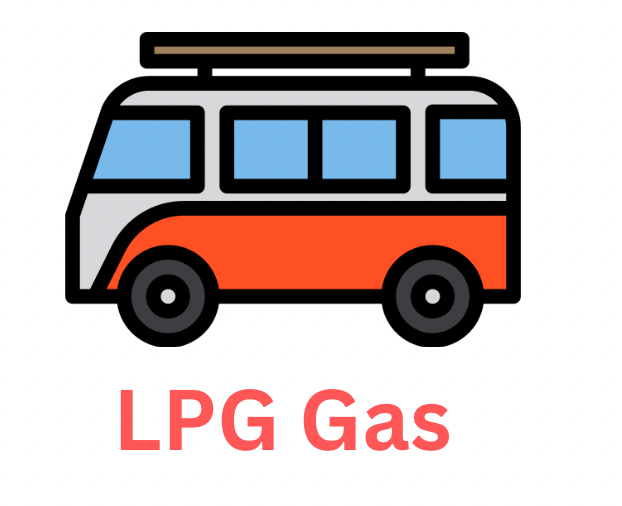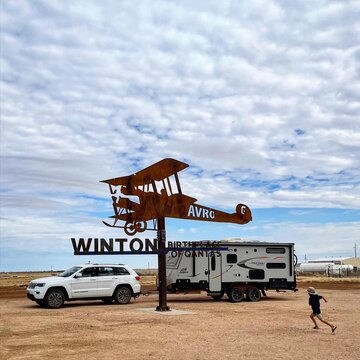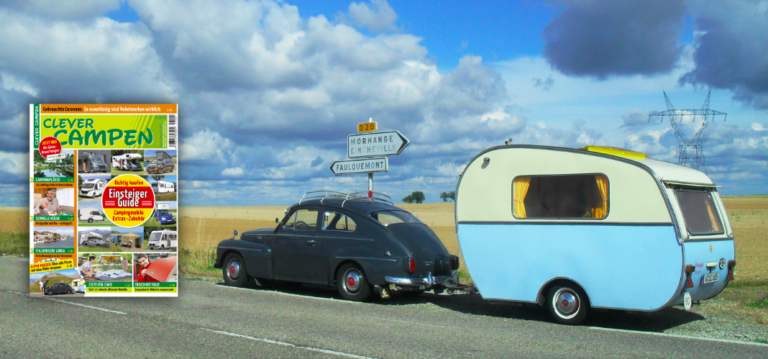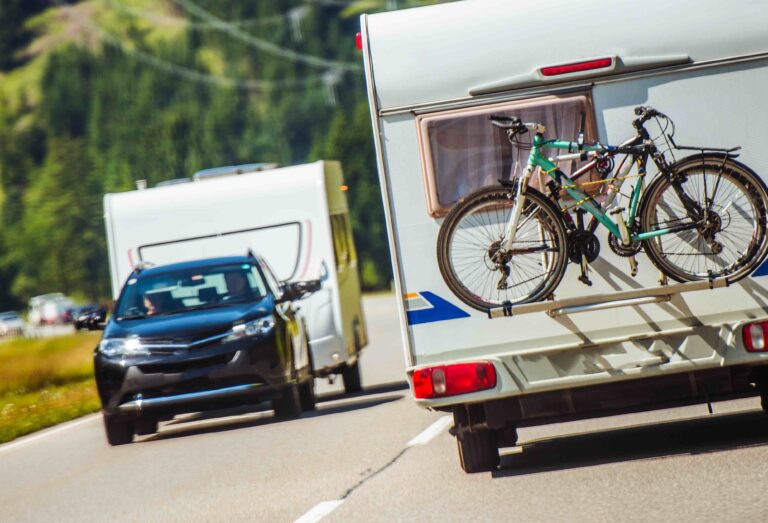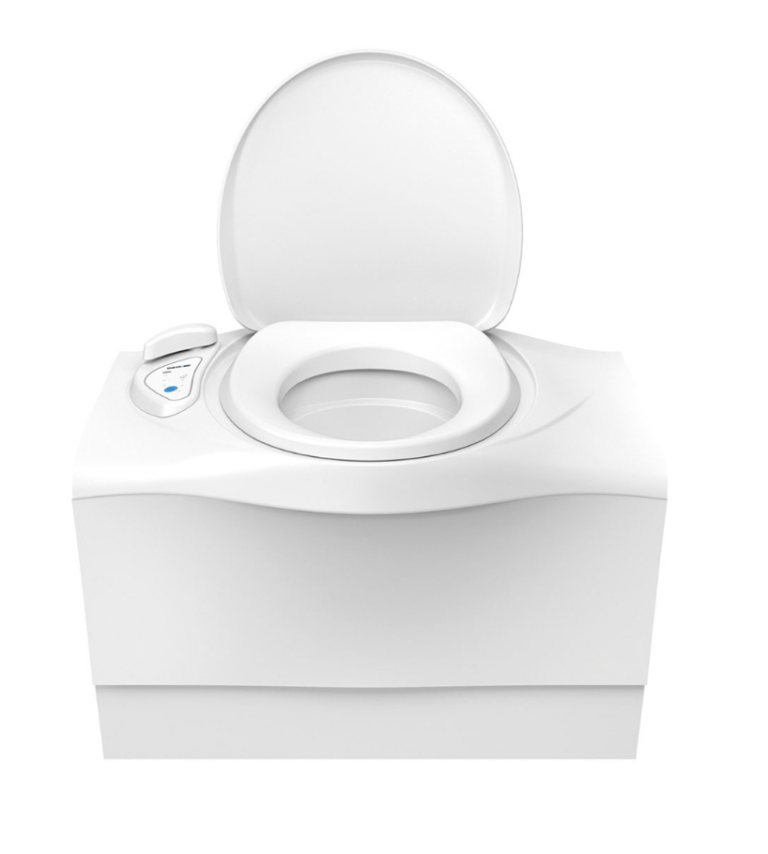Complete Guide to Caravan Insurance
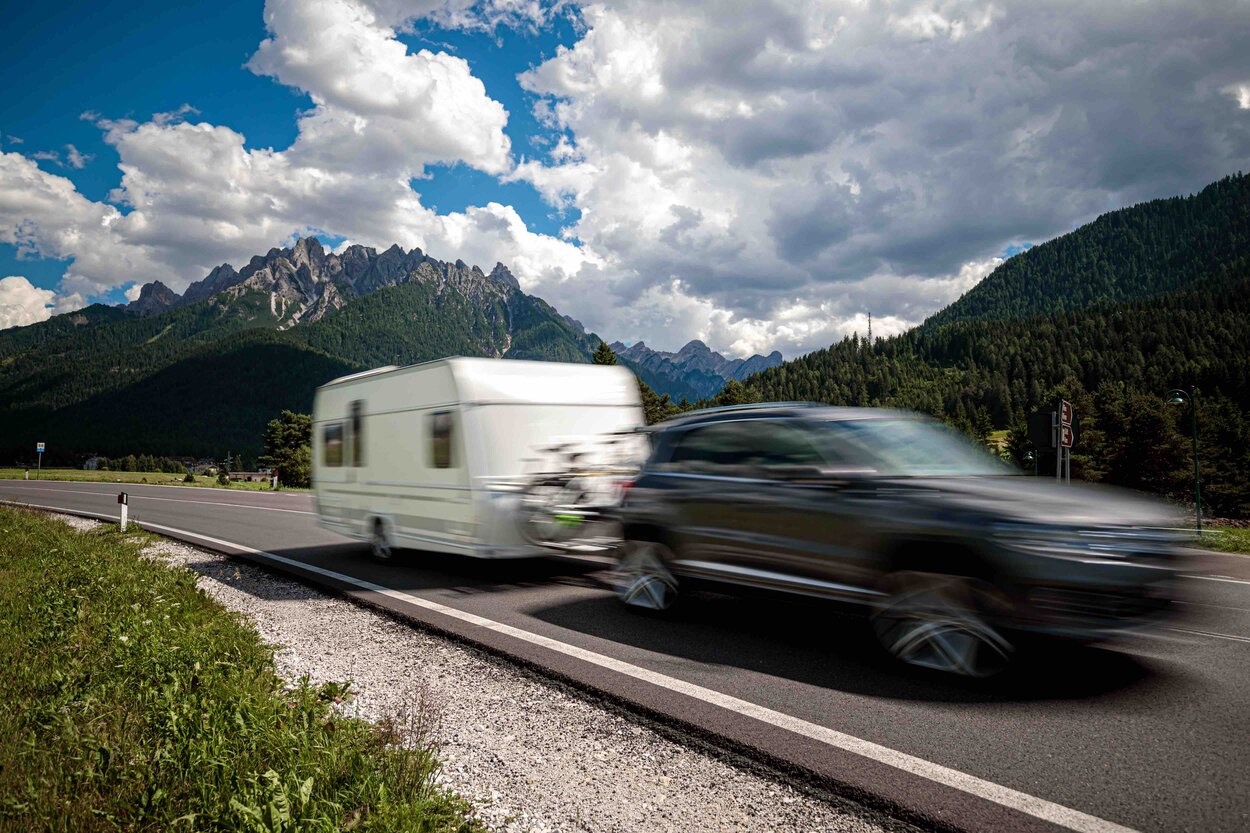
Intro
Exploring the world in a caravan is a thrilling adventure for many travelers. Whether you own a touring caravan or a static caravan, it’s essential to understand the importance of caravan insurance to protect your valuable asset. In this comprehensive guide, we will delve into the intricacies of caravan insurance, the different types of coverage available, and the requirements for towing a caravan. What is Caravan Insurance?
Caravan insurance is a specialized type of insurance that provides coverage for a caravan, whether it is a touring caravan that you tow behind your vehicle or a static caravan that is permanently located in a holiday park or on private land. Just like car insurance, caravan insurance protects you financially in the event of accidents, theft, or damage to your caravan.
Types of Caravan Insurance Coverage
Third-Party Only: This is the most basic type of caravan insurance and covers you for any damage or injury you may cause to other people, vehicles, or property while using your caravan. It does not cover any damage to your own caravan.
Third-Party, Fire, and Theft: This type of insurance covers you for third-party liability as well as any damage or loss to your caravan due to fire or theft.
Comprehensive: Comprehensive caravan insurance is the most extensive type of coverage, offering protection for third-party liability, fire, theft, and accidental damage to your caravan.
This is the recommended option for most caravan owners to ensure complete peace of mind.
Optional Add-Ons
In addition to the standard coverage options, there are several optional add-ons that you can include in your caravan insurance policy for additional protection. Some common add-ons include:
1. European cover: This provides insurance coverage for your caravan when traveling in Europe.
2. Legal expenses: This covers legal costs in case you need to take legal action related to your caravan.
3. Contents cover: This protects the belongings inside your caravan, such as furniture, appliances, and personal items.
4. Breakdown cover: This provides assistance in case your caravan breaks down while on the road.
check out some insurance quotes from here
Requirements & Regulations for Towing a Caravan
If you plan to tow a caravan, there are specific requirements and regulations that you must adhere to ensure safety and compliance with the law. Some essential considerations include:
1. Your driver’s license: Make sure that you have the appropriate driver’s license to tow a caravan, as specific categories may be required depending on the weight of your caravan.
2. Vehicle capacity: Check that your vehicle is capable of safely towing the weight of the caravan, including any contents and passengers.
3. Safety checks: Regularly inspect and maintain your caravan to ensure that it is roadworthy and safe for travel.
4. Insurance: It is a legal requirement to have insurance for your caravan while towing it on public roads. Make sure that your insurance policy covers towing and complies with all regulations.
What is caravan insurance and why is it necessary?
Caravan insurance is a type of insurance policy that provides financial protection for your caravan in case of accidents, theft, or damage. It is necessary to safeguard your investment and cover any unexpected costs that may arise during your caravan adventures.
Caravan insurance covers a range of situations, including accidental damage, vandalism, malicious damage, theft, fire, storm damage, and public liability. Without insurance, you would be responsible for covering the cost of repairs or replacements yourself, which can be expensive. Additionally, if you have taken out a loan to purchase your caravan, your lender may require you to have insurance to protect their investment.
Caravan insurance can also provide peace of mind while you are on the road, knowing that you are financially protected in case of emergencies. It can cover the cost of alternative accommodation if your caravan is uninhabitable, as well as towing and recovery costs if your caravan breaks down or is involved in an accident.
Overall, caravan insurance is necessary to protect your investment, comply with legal requirements, and provide peace of mind while traveling. It is always advisable to research different insurance providers and policies to find the one that best suits your needs and budget.
Types of caravans that require insurance
Both touring caravans and static caravans require insurance coverage to protect against potential risks. Whether you use your caravan for holidays or as a permanent residence, having insurance is crucial to mitigate any financial losses.
Touring Caravans Insurance
Touring caravan insurance typically covers risks such as theft, damage, and liability while on the road or parked at a site.
Can include cover for contents, equipment, and fixtures within the caravan.
May also include emergency accommodation costs if your caravan is unusable due to an insured event.
This is designed for caravans that are regularly towed on the road.
Touring caravan insurance typically includes coverage for breakdowns and roadside assistance, as the caravan is constantly on the move.
Another difference is that touring caravan insurance may include coverage for driving in Europe, as caravans are often taken abroad for holidays.
Additionally, the cost of insurance for a touring caravan is usually higher than insurance for a static caravan, as there is a higher risk of accidents and damage when the caravan is being towed.
Static Caravan insurance
Static caravan insurance, on the other hand, provides coverage for risks specific to static caravans.
Static caravan insurance may offer:
Additional coverage for contents inside the caravan.
Insurance for detached structures like decking or awnings.
May offer coverage for loss of rent if the caravan is rented out to others.
And provide public liability.
Static caravans are considered lower risk as they are stationary most of the time.
This can include protection against damage from storms, flooding, fire, vandalism, and theft. It can also cover the structure of the caravan, as well as fixtures, fittings, and contents inside.
It’s important to carefully read the policy documents to understand exactly what is covered and what is excluded.
When choosing an insurance policy for your caravan, it’s important to consider factors such as the level of cover needed, any optional extras you may want, the cost of the premium, and the reputation of the insurance provider. Comparing quotes from different insurers can help you find the best deal for your specific needs.
Factors influencing caravan insurance cost
Several factors can influence the cost of caravan insurance, including the value of your caravan, the level of cover you choose, your driving experience, and the security measures in place. Insurers also consider the type of caravan and where it is stored when determining the insurance premium. Some of the key factors that can impact the cost of caravan insurance include:
1. The value of your caravan: The more expensive your caravan is, the higher the insurance premium is likely to be as insurers will need to cover the cost of repair or replacement in the event of damage or theft.
2. Level of cover: The more comprehensive the cover you choose, the higher the premium is likely to be. Basic cover may be cheaper but will offer less protection in the event of an accident or theft.
3. Driving experience: Insurers may take into account your driving experience and any previous claims history when calculating the premium. Younger or less experienced drivers may face higher insurance costs.
4. Security measures: Having security measures in place such as wheel clamps, hitch locks, alarms, and tracking devices can help reduce the risk of theft and may lower your insurance premium.
5. Type of caravan: The type of caravan you own, whether it is a touring caravan, static caravan, or motorhome, can affect the insurance premium. Different types of caravans may have different risks associated with them.
6. Storage location: Where you store your caravan when it is not in use can also impact the insurance cost. Caravans stored in secure storage facilities or on private property may be considered lower risk and therefore attract lower premiums.
7. Usage: The frequency and distance of use of your caravan can also influence the insurance cost. Caravans used more frequently or for longer trips may be considered higher risk by insurers.
TIP It’s important to shop around and compare quotes from different insurers to find the best deal for your specific needs and circumstances.
TIP
TIP : Having the right policy cover is crucial when it comes to caravan insurance. Ensure that your policy includes adequate protection for theft, accidental damage, public liability, and personal belongings to have comprehensive coverage in various scenarios.
In the unfortunate event of theft or vandalism, having the right policy cover will ensure that you are financially protected and can easily replace or repair your caravan. Accidental damage can happen at any time, so having this cover will give you peace of mind knowing that you are covered for unforeseen circumstances.
Public liability cover is essential in case someone is injured or their property is damaged as a result of your caravan. This cover will protect you from potentially expensive legal claims and ensure that you are not left financially vulnerable.
Personal belongings cover is also important as it protects your personal possessions while they are inside your caravan. This can include items such as electronics, clothing, and other valuables. Having this cover means that you can easily replace any items that are lost or damaged in an incident.
Overall, having the right policy cover in caravan insurance is crucial for protecting yourself financially in a variety of situations. Be sure to review your policy regularly and ensure that it meets your specific needs and provides adequate protection for your caravan.
New for old insurance policies
New for old insurance policies ensure that in the event of a total loss or irreparable damage to your caravan, the insurer will replace it with a new caravan of the same make and model, without factoring in depreciation. This type of policy offers peace of mind for caravan owners. With a new for old insurance policy, you can rest assured that you will not be left out of pocket if something were to happen to your caravan. You will receive a brand new replacement, allowing you to continue enjoying your travels without any financial burden.
It is important to note that new for old policies may have higher premiums compared to traditional insurance policies, as they offer more comprehensive coverage. However, the benefits of having a new for old policy far outweigh the extra cost, especially if you have invested a significant amount of money in your caravan.
When considering insurance for your caravan, it is important to weigh the options and choose a policy that best suits your needs and budget. A new for old policy may be the best choice for those who want the peace of mind knowing that their caravan will be replaced with a brand new model in the event of a loss.
Requirements for Towing a Caravan
Do I need a special license to tow a caravan?
Depending on the weight of your caravan and when you obtained your driving license, you may need a special license to legally tow a caravan. Check with the relevant authorities to ensure you meet all required licensing regulations. In general, if you obtained your driving license before January 1997, you are likely able to tow a caravan within the standard weight limits specified for your license category. However, if you obtained your license after this date, you may need to apply for an additional category on your license to legally tow a caravan of a certain weight.
It is important to check the specific regulations in your country or region to ensure you are compliant with all licensing requirements when towing a caravan. Failure to do so could result in fines or penalties if you are found to be towing a caravan without the appropriate license.
Insurance requirements for towing a caravan
When towing a caravan, it is essential to have the appropriate insurance coverage in place. Make sure your caravan insurance policy includes towing coverage to protect your caravan and other vehicles in case of accidents or damages while on the road. Additionally, you may also need to have liability insurance in place to cover damages to other people’s property or injuries caused by your caravan while being towed. It is important to check with your insurance provider to ensure you have the necessary coverage to protect yourself and others while towing a caravan.
Some insurance providers may also require specific towing equipment or safety features on your vehicle and caravan to ensure coverage in case of accidents or damages. Make sure you comply with any requirements set by your insurance provider to avoid any potential issues with your coverage.
Overall, having the right insurance coverage in place while towing a caravan is essential to protect yourself, your caravan, and others on the road. Make sure to review your insurance policy and speak with your insurance provider to ensure you have the necessary coverage for towing a caravan.
Optional Add-Ons
Accidental Damage
When it comes to caravan insurance, one of the most essential coverage options is accidental damage. This provides protection in case your caravan sustains damage from unforeseen events such as collisions, falling objects, or accidental mishaps.
Accidental damage cover ensures that repairs or replacements necessary for your caravan due to unexpected incidents are taken care of by the insurance provider. It is crucial to carefully review the policy details to understand what is classified as accidental damage and ensure you have adequate coverage for all potential scenarios.
Theft and Vandalism
Caravans are valuable assets that can be targeted by thieves and vandals, making theft and vandalism cover a vital component of caravan insurance. This coverage protects you in case your caravan is stolen or damaged maliciously by intruders.
Theft and vandalism cover can provide peace of mind knowing that you are financially safeguarded against the unfortunate event of theft or intentional damage to your caravan. Ensure that you have a comprehensive understanding of the terms and conditions related to theft and vandalism in your insurance policy to ensure you have sufficient protection in place.
Contents Cover
Caravan insurance should also include contents cover to protect personal belongings stored inside the caravan. Contents cover extends financial protection in case items such as electronics, furniture, clothing, or other possessions kept within the caravan are damaged, lost, or stolen.
It’s important to document all valuable items kept within the caravan and accurately estimate their total value when selecting contents cover limits. This ensures that in case of an unfortunate event where your belongings are affected, you can recover their value with adequate insurance coverage.
Public Liability Insurance
Public liability insurance is another crucial aspect of comprehensive caravan insurance policies. This coverage protects you financially if a third party suffers injury or property damage due to an incident involving your caravan while it’s parked or being used by you.
Public liability insurance covers legal expenses, compensation payments, and any associated costs if someone files a claim against you for damages caused by your caravan. Having public liability insurance provides a layer of protection against unexpected liabilities that may arise from accidents involving your caravan on public or private property.
Gap Insurance
Gap insurance is a valuable add-on for caravan owners to consider. This type of coverage is designed to protect you against financial loss in the event that your caravan is declared a total loss due to theft or accident.
In such unfortunate circumstances where the payout from your standard insurance policy might not be enough to cover the outstanding finance amount on your caravan, gap insurance bridges this gap. It ensures that you are not left with a significant financial burden and helps you settle any outstanding payments without affecting your finances severely.
European Cover
If you are planning on taking your caravan on European adventures, opting for European cover as an add-on is essential. This extension to your insurance policy provides you with the necessary protection while traveling abroad. It typically includes features such as breakdown assistance in Europe, medical expenses cover, and repatriation costs.
Having European cover ensures that you can explore different countries without worrying about unexpected expenses or legal liabilities that may arise during your travels. It offers peace of mind and allows you to fully enjoy your caravan adventures across the continent.
Breakdown Assistance
Breakdown assistance add-on is another crucial feature to have in your caravan insurance policy. Caravanning comes with its own set of risks, and experiencing a breakdown while on the road can be quite stressful.
Breakdown assistance provides you with roadside help in case your caravan breaks down, ensuring that you can quickly get back on track without significant delays or disruptions to your journey. This add-on typically covers services like towing, roadside repairs, emergency accommodation if needed, and onward travel arrangements so that you can continue with your trip hassle-free.
Claim Process
When it comes to making a claim on your caravan insurance policy, having the right documentation is crucial to ensure a smooth and successful process. The first step is to gather all pertinent information related to the incident, including photographs of the damage or theft, any police reports filed, and contact details of any witnesses present. These documents serve as evidence to support your claim and help the insurance company assess the extent of the loss accurately.
Documentation Required
Most insurance providers will typically ask for your policy details, proof of ownership (such as purchase receipts or registration documents), and a completed claim form. It’s essential to provide all requested documentation promptly and ensure that it is accurate and complete.
Failure to provide the necessary paperwork could result in delays or even denials of your claim. Additionally, if repairs are needed, keep all invoices and receipts from authorized repair services as these will be required for reimbursement.
Reporting Timeframe
Timeliness is key when it comes to reporting a claim on your caravan insurance policy. It’s crucial to notify your insurance provider as soon as possible after an incident occurs. Most policies specify a timeframe within which claims must be reported – this can range from 24 hours to a few days depending on the insurer.
Failing to report within the stipulated timeframe could jeopardize your claim eligibility. Prompt reporting enables the insurance company to initiate investigations promptly and expedite the claims process for a quicker resolution.
Choosing the right tow bar for your caravan
Selecting the right tow bar for your caravan is crucial to ensure safe and secure towing. Consider factors such as the weight capacity of the tow bar, compatibility with your caravan, and any additional features that enhance stability and control while towing. Here are some key considerations to keep in mind when choosing a tow bar for your caravan:
1. Weight capacity: Make sure the tow bar you choose has a weight capacity that matches or exceeds the Gross Vehicle Weight (GVW) of your caravan. This will ensure that the tow bar can safely tow the caravan without being overloaded.
2. Compatibility: Check that the tow bar is compatible with your caravan’s make and model. Some tow bars may require specific fittings or adapters to properly attach to your caravan, so be sure to verify compatibility before making a purchase.
3. Type of tow bar: There are different types of tow bars available, such as fixed, detachable, and retractable. Consider your needs and preferences when selecting the type of tow bar that will work best for your caravan. Fixed tow bars are generally more cost-effective and provide a permanent towing solution, while detachable and retractable tow bars offer more flexibility and convenience.
4. Safety features: Look for tow bars that come with additional safety features, such as built-in stabilizers, anti-sway technology, and integrated lighting systems. These features can help improve stability and control while towing, making your journey safer and more comfortable.
5. Installation: Consider how easy or difficult it is to install the tow bar on your caravan. Some tow bars may require professional installation, while others can be easily fitted at home with the right tools and instructions. Make sure you are comfortable with the installation process before purchasing a tow bar.
6. Brand reputation: Choose a reputable tow bar manufacturer with a history of producing high-quality, durable products. Research customer reviews and ratings to get an idea of the reliability and performance of the tow bar you are considering.
By carefully considering these factors, you can select the right tow bar for your caravan that meets your towing needs and ensures a safe and enjoyable journey.
More Factors for consideration
When choosing a caravan insurance provider, consider factors such as the reputation of the insurer, the types of coverage offered, customer service quality, and premium rates. Compare quotes from multiple providers to find the best insurance policy for your caravan.
1. Reputation: Look for an insurance provider with a strong reputation within the industry. Read reviews and ask for recommendations from other caravan owners to ensure you are choosing a reliable and trustworthy insurer.
2. Coverage options: Consider the types of coverage options available for your caravan. Make sure the policy includes coverage for theft, accidental damage, fire, and third-party liability. Some insurers may also offer additional cover for contents inside the caravan or breakdown assistance.
3. Customer service: Choose an insurance provider with good customer service and support. Look for insurers with responsive customer service teams who are available to help you with any questions or claims process.
4. Premium rates: Compare premium rates from different insurance providers to find a policy that offers good value for money. Keep in mind that the cheapest option may not always provide the best coverage, so consider the overall value of the policy.
5. Excess and policy limits: Check the excess amount and policy limits of the insurance policy. Make sure you understand how much you will need to pay out of pocket in the event of a claim, and ensure that the policy limits are sufficient to cover the value of your caravan and belongings.
6. Claims process: Consider the ease of the claims process when selecting an insurance provider. Look for insurers with a straightforward and efficient claims process to ensure that you can quickly and easily make a claim when needed.
7. Additional benefits: Some insurance providers may offer additional benefits or discounts for caravan owners, such as no claims bonuses, discounts for security devices, or cover for European travel. Consider these additional benefits when choosing an insurance provider for your caravan. .
Comparing insurance quotes for your caravan
Obtaining insurance quotes from different providers allows you to compare coverage options and premium rates. Provide accurate information about your caravan, including its value and usage, to receive tailored insurance quotes that meet your specific needs. When researching insurance quotes for your caravan, consider the following factors:
1. Type of coverage: Decide on the type of coverage you need for your caravan, such as comprehensive, third-party, fire, and theft, or contents insurance. Ensure that the coverage aligns with your specific requirements and budget.
2. Value of the caravan: Provide an accurate appraisal of your caravan’s value, including any modifications or upgrades. This information will help insurance providers determine the appropriate coverage and premium rates.
3. Usage of the caravan: Specify how you will use your caravan, whether for recreational purposes or as a permanent residence. The intended usage can impact the type of coverage needed and the cost of insurance.
4. Security features: Inform insurance providers about any security features installed in your caravan, such as alarms, immobilizers, or tracking devices. These security measures can help reduce the risk of theft and lower your insurance premium.
5. No-claim bonus: If you have a history of making no claims on your insurance policies, inquire about a no-claim bonus. This discount rewards policyholders for safe driving practices and maintaining a claims-free record.
6. Multiple quotes: Obtain insurance quotes from several providers to compare coverage options and premium rates. Consider factors such as customer service, claims processing, and policy flexibility when selecting an insurance provider.
7. Discounts: Inquire about any discounts or promotions offered by insurance providers, such as multi-policy discounts or loyalty rewards. These discounts can help lower your insurance premium and save you money in the long run.
By considering these factors and obtaining insurance quotes from different providers, you can make an informed decision on the best coverage options for your caravan. Remember to review your policy regularly and update your coverage as needed to ensure adequate protection for your caravan.
FAQ’s
Q: Do I need caravan insurance?
A: Yes, if you own a caravan, it is highly recommended to have caravan insurance to protect your investment and cover potential risks.
Q: What does caravan insurance cover?
A: Caravan insurance typically covers damage to your caravan, theft, liability, and sometimes contents inside the caravan.
Q: Do I need insurance to tow a caravan?
A: While it’s not a legal requirement to have insurance specifically for towing a caravan, it’s important to check if your car insurance policy covers towing.
Q: How much does caravan insurance cost?
A: The cost of caravan insurance can vary depending on factors such as the value of your caravan, the level of coverage, your location, and your claims history.
Q: What should I know about caravan insurance?
A: You should understand what your policy covers, how to make a claim, any exclusions or limitations, and whether you need additional coverage for items inside the caravan.
Q: Is caravan insurance compulsory?
A: Caravan insurance is not a legal requirement in most places, but it is highly recommended to protect your caravan from unexpected events.
Q: What insurance do I need to tow a caravan?
A: While not mandatory, you may need insurance coverage for the vehicle towing the caravan. Check with your insurance provider to ensure you are adequately covered.
Conclusion
well there you have a guide on Caravan Insurance being prepared and doing prepare research will not only save money but will help if an insurance claim is to be started , other caravan related information can be found on our there page here
safe travels
